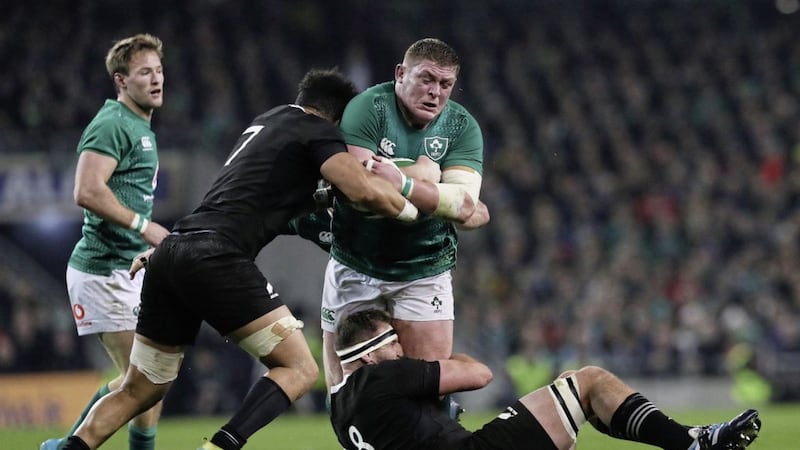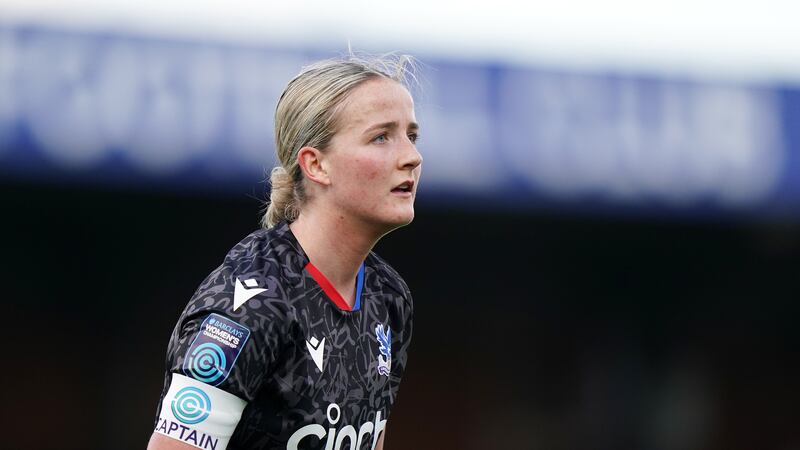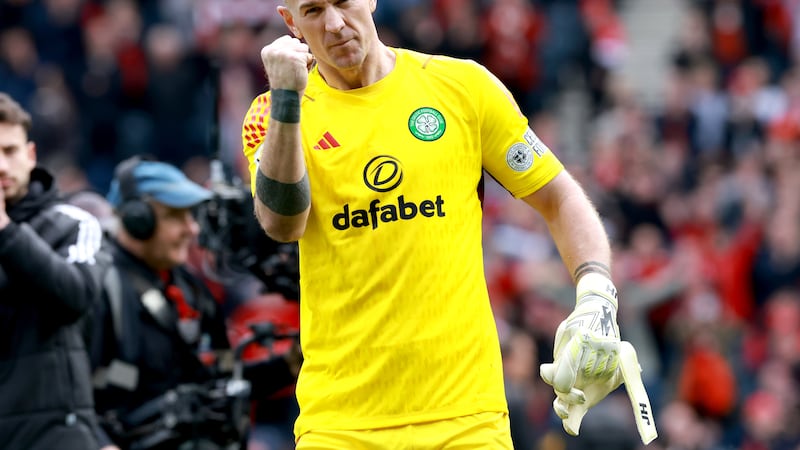SPACE is always important to find in sport, but it’s only a starting point for what you do with it.
‘The space between the ears’ is crucial too; again, what goes in players’ heads has a huge effect on the outcome.
Usually Irish teams in most codes revel in being labelled ‘underdogs’, but sometimes that attitude can be taken too far.
Mick McCarthy’s approach to the Republic of Ireland’s Euro 2020 qualifier away to Georgia on Saturday can best be described as ‘over-cautious’; at worst it was appallingly negative.
The Netherlands boss Ronald Koeman said similar things about Northern Ireland’s tactics in Rotterdam last Thursday night but, putting it politely, though, he was talking double Dutch.
Even though McCarthy’s men came away with a point after a goal-less draw, while Michael O’Neill’s side lost 3-1, few would be in any doubt about which was actually the better performance.
Before that game at ‘De Kuip’, it was put to NI player Paddy McNair that the Dutch had a reputation for arrogance and might perhaps under-estimate their visitors.
He was measured in his response, and also accurate in his prediction of how the game would go: “The Dutch are such a famous nation. Some of their players might not know much about Northern Ireland and think it will be easier than it will be. But they’ll see we’re joint-top so they will know they will be in for a game.”
Indeed they were. The Dutch barely troubled NI ’keeper Bailey Peacock-Farrell until they scored in the 80th minute – and even then that was an equaliser.
Two more Dutch goals in added time resulted in a skewed score-line, but Koeman could not manage to be gracious in victory, saying: “It is outrageous, the football they play, but it is allowed and they get the most out of their qualities. I respect that, but it is terrible to watch.”
That’s the sort of ‘respect’ that Mafiosi dole out.
While Koeman had Champions League winners, never mind Champions League players, in his side, Michael O’Neill’s best players aren’t even at Europa League level, while some don’t even play regularly for their clubs.
McCarthy has to struggle with those limitations too, but a team ranked 27th in the world and 17th among Uefa nations shouldn’t play like underdogs against a side that barely scrapes into Europe’s top 40, even away from home.
In soccer, performance is all that you can control, to some extent; results remain unpredictable.
Performances relate to results, but in a low-scoring code like soccer they are not always closely linked.
Rugby is different. Possession and territory are much more likely to lead to victory, with the fact that points can be accrued for kicking the ball over the crossbar contributing to separating sides on the scoreboard.
So Ireland could be forgiven for going into this weekend’s Rugby World Cup quarter-final against New Zealand anticipating a narrow defeat as their best potential outcome.
On recent form, the World Cup-holders will comfortably march on into the semi-finals, avenging their autumn international loss in Dublin less than a year ago.
Yet that result will give Ireland belief, as will their being top of the world rankings very recently, even if that rating wasn’t given much credence by anyone who had watched the Six Nations this year.
Beyond advertising guff, Ireland simply have to believe, have to be more positive than they have been. They will not, cannot contain New Zealand for 80-plus minutes.
The ‘underdogs’ tag can be useful, but it can also limit belief, leading to inevitable defeat.
The danger of going too far the other way is that self-belief will lead to over-confidence – and its dreaded sidekick, complacency.
There’ll be no danger of that from Joe Schmidt’s side in Tokyo on Saturday. Ireland obviously will respect New Zealand’s quality – but must not fear it.
One major factor in New Zealand’s continued success has been their humility.
Not for them that Dutch arrogance of telling others how to play, even though they have long been, and still are, the best in the world.
The ideal approach is perhaps best summed up by the following advice: Know your level – and then try to play above that.
New Zealand know they’re the best, but they keep trying to show that in every game they play, and to get better every day.
///////////////////
Talk of a ‘clampdown’ on high tackling at this Rugby World Cup should also be construed as useful advice.
‘Clamp down’.
Tackle lower.
It’s harsh that Ireland centre Bundee Aki will be suspended for the meeting with his native New Zealand for a tackle which didn’t appear malicious. Aki didn’t line his opponent up and ‘do’ him, it was a split-second decision, a tackle that was too high.
Yet if he inadvertently becomes the poster boy for safer tackling that would be great.
Rugby tackling technique used to be about hitting your opponent between hip and knee, thereby stopping them running. At worst (that is, at its highest) the tackle would be round the waist, but that meant a strong runner could keep powering forward.
You could probably draw a graph illustrating how rising average tackle height correlates to dropping entertainment levels over the past couple of decades.
Rugby union became more like rugby league, with lines of men bashing into each other, although at least the league code’s ‘six tackles’ rules meant teams had to be more positive or risk having to hand the ball over, rather than relentlessly grinding forward with 10-man, ball-up-the-jumper dross.
Tackling became largely about swallowing up the ball, holding up the opponent rather than bringing him down.
One consequence of that approach is that it allows more players to surround the tugging match for the possession, rather than the ball potentially going loose.
Even worse, head injuries and concussions have been on the increase because tackles have been too high.
World Rugby is quite right to clamp down - player safety and entertainment should both increase as a result.








